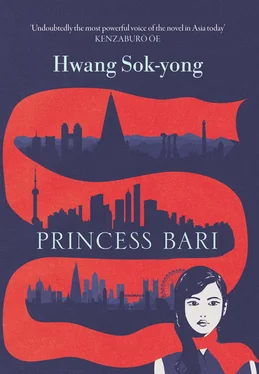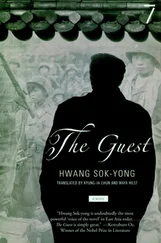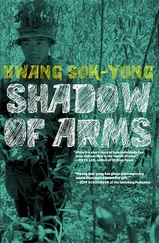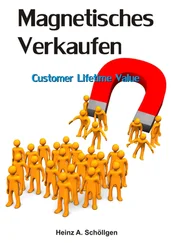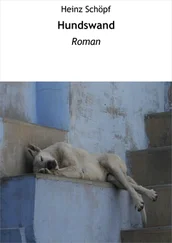“I’m sorry I wasn’t there for you. That’s how it goes, I guess. I kept telling myself I would check in on you guys, but easier said than done. In any case, think of me as your family now. Don’t hesitate to come to me anytime you need my help.”
I finished eating and decided to risk a question while the men were still drinking.
“My sister Mi crossed over before the rest of us. If she’s still here, I’d like to try to find her.”
“Ah yes, I remember. I know some people who might have leads. I’ll see what I can find out.”
Uncle Salamander found me a job working for a Han Chinese family. The parents were both teachers. I spent six months as a live-in housekeeper and babysitter before moving on to Paradise, the massage studio where I would later work. While living with the family, I learned a little Chinese. The woman gave me a primary-school textbook and helped me learn how to read and write. When I moved out, she patted me on the back.
“You’re a clever one, Bari,” she said. “You’ll do well wherever you go. I’ve never seen a student learn as quickly as you do.”
The job at Paradise was also thanks to Uncle Salamander — except I wasn’t supposed to call him that anymore. I said it to his face without thinking, and he rapped me on the head with his knuckles and gently scolded me: “Little cheeky to call your uncle by a nickname, no? Your father’s the only person left who gets to call me that.” It made me sad to hear that.
He told me that if I wanted to make a lot of money without too much risk, then I should learn a trade at a business run by one of his younger friends. I was well aware that most North Koreans in my position weren’t paid for their work — they were grateful if they got so much as room and board. The police were not yet actively hunting down defectors, but they did show up if complaints were made. Regardless of the type of work they did, North Koreans earned no more than a third of what a documented Chinese resident might earn; but I was lucky, and earned half, and that was for doing mostly small errands as an apprentice.
Paradise, which specialized in foot massage, was surrounded by bars and karaoke parlours. There were massage studios nearby that doubled as saunas and gave full-body massages, but they charged more than us and were rumoured to offer more than just a rubdown. Our place was frequented mostly by tourists and business travellers. Married couples also came by sometimes to get foot massages together. Paradise was where I met Xiang. There were around twenty masseuses in total, with Korean-Chinese working alongside Han Chinese. Most were young, unmarried women who’d come from distant rural villages to earn money in the city. Of the six who were married, only two actually lived with their husbands. The married women were no different from the rest in that they’d left their hometowns and come to Yanji in search of work, either alone or with only their children in tow. Xiang was one of the two who lived with her husband. She must have been around twenty-five years old at the time. The oldest was Qinqin, who had her kids with her and claimed she was thirty, but according to Ms Kim, the old Korean-Chinese auntie who took care of the cooking and cleaning, she was closer to thirty-four. The owner of the studio would show up around closing time to dole out everyone’s daily wages, while his wife ran the business the rest of the time.
Our biggest rush was always right after lunch or late at night. During the slack hours of the late afternoons and early evenings, the masseuses would gather in the lobby and pass the time snacking and watching television. Sometimes Ms Kim and I would throw together a simple dish for them. We minded the owners, but the ones we really had to be good to were the masseuses, because they would sometimes split their tips with us.
*
One day, while cleaning the showers, I found a gold ring. I’d just sprayed detergent on the tiled walls, given them a good scrub and was rinsing the suds off with the handheld showerhead when I noticed something shiny in the drain trap. I bent over to take a closer look. The sizeable gold ring had a square face with a lotus flower engraved in the middle. I slipped it on. The ring spun loosely around my finger. I wondered who’d lost it. Given the size, it would be worth a lot if I sold it in the night market. I stashed it in my apron pocket. The following morning, after everyone had arrived for work and I was carrying trays of food back and forth to serve them their lunch, I paused for a moment and asked for everyone’s attention.
“Excuse me, did one of you lose something?” I asked.
The Korean-Chinese women translated what I’d said for the Han Chinese women sitting next to them. They looked at each other in silence, and then Xiang raised her hand.
“Did you find my ring?” she asked me in Chinese.
I answered in Chinese: “What does it look like?”
“Well, it’s gold … and it has a lotus flower engraved on the front.”
I smiled and pulled the ring from my pocket. A few days later, Xiang slipped a bill, folded neatly into a square, into my hand after one of her massage appointments. I went to the kitchen and unfolded it. It was a twenty- yuan note. I’d received one- yuan and five- yuan tips before, but never so much at one time. When Xiang finished with a difficult massage and was resting in the lobby, I brought her some warm, sweet jujube tea. That’s how we became friends.
One Sunday, when she had a day off, Xiang got permission from the owner to take me to her house. She lived in a small flat with a front room and a kitchenette near the Eastern Market. Even before we reached her door, I could smell food cooking. As soon as we stepped inside, I saw a man standing at the kitchen counter with his back to us. He was dressed in a sleeveless undershirt and was stir-frying meat and vegetables in a wok.
“I’m home!” Xiang called out.
Xiang’s husband kept flipping the food in the wok and said, without turning to look at us: “Welcome back. Did you bring Bari with you?”
We sat down in the front room, which was furnished with only a table and four chairs. When he brought out the food he’d prepared, I stood and introduced myself timidly. I tried to help him with the food, but Xiang tugged me back by the hem of my shirt. She seemed to be saying that, in their house, whoever started a task had to finish it. They were Han Chinese, so of course the food was Chinese too. There were two types of stir-fried vegetables, pork and fried fish. They were chatty and talked fast, but I was only able to manage a few simple words.
Xiang’s husband, Zhou, listened as she told him my story, and then he told me how they’d left their hometown in Heilongjiang Province together. He had worked there as an assistant to a doctor of traditional Chinese medicine while learning acupuncture from him, and recently he’d been taking classes at a private institute to get certified as an acupuncturist. Then he would be able to move to a larger city and make more money. Each time he smiled, his sparse facial hair made his mouth look huge, and his eyes, which were much smaller in contrast, looked like two lines drawn in pencil.
“He taught me the meridian points for the feet,” Xiang said.
“Meridian points?”
“They’re not visible to the naked eye, but every part of the human body is connected to a point on the bottom of your feet.”
Xiang poked her husband and told him to stick his foot out. He reluctantly offered up his dirty foot, and Xiang pointed to different spots with a ballpoint pen, identifying meridian points for the heart, stomach and liver. It was hard for me to understand all of it.
“You should learn this, Bari. You could make good money giving massages.”
Читать дальше
